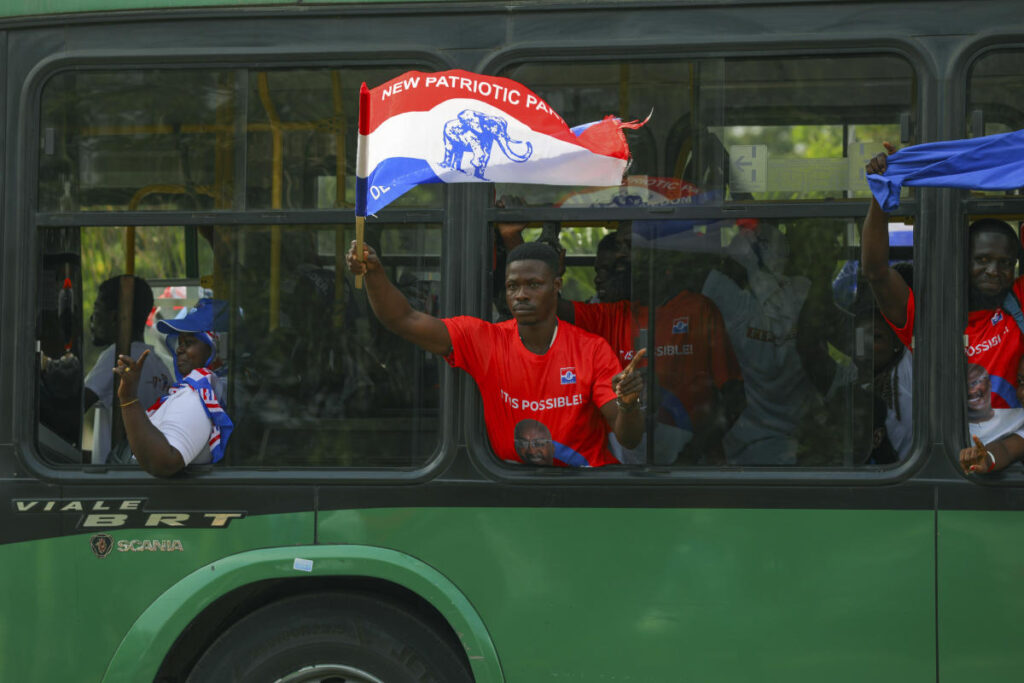Ghana is set to hold a pivotal general election, with voters heading to the polls to decide on both presidential and legislative candidates amidst a backdrop of escalating economic challenges and regional instability. The election, scheduled for Saturday, serves as a critical test for democracy in West Africa, a region that has witnessed a troubling surge in extremist violence and military coups. Approximately 18.7 million citizens are registered to participate in the elections, yet many Ghanaians feel disillusioned with the political landscape, as the two leading candidates—Vice President Mahamudu Bawumia of the ruling New Patriotic Party (NPP) and former President John Dramani Mahama of the opposition National Democratic Congress (NDC)—offer little optimism for substantial change.
Traditionally celebrated as a model of democratic governance, Ghana has recently encountered significant socioeconomic turmoil, marked by soaring inflation and rising unemployment. This contrast has led to widespread public sentiment that the country is on the wrong trajectory, with a staggering 82% of Ghanaians expressing dissatisfaction with the current state of affairs, according to a recent survey by Afrobarometer. The upcoming vote presents a stark choice between Bawumia, who seeks to continue the policies of the current administration that has struggled with economic crisis, and Mahama, who attempts to connect with voters by promising a comprehensive “reset” of the nation’s governance and economic structures.
Reflecting on Ghana’s legislative framework, voters will also elect 276 members of parliament. The political scene remains highly competitive, with the NPP and NDC each holding 137 seats in the existing 275-member legislature. In this context, both parties are vying for control through their platforms, which although claiming distinct ideologies, provide similar economic proposals. As the election day approaches, both candidates have intensified their campaigns, rallying support to address the pressing economic frustrations affecting the citizenry. Bawumia’s strategy involves continuation of existing economic initiatives, while Mahama’s emphasis lies in a transformative approach aimed at revitalizing the economy and various social sectors.
Optimism surrounds the election atmosphere in the capital city of Accra, where festivities including political rallies, vibrant posters, and upbeat election themes abound. However, an undercurrent of tension persists as citizens confront the stark realities of their crumbling economic conditions. Ghana is grappling with rising inflation rates, which reached an alarming 54% last year, and while there have been slight declines, the everyday experience for many remains unchanged at the marketplace. The looming financial burden, exacerbated by a government default on foreign debt and rising prices for essentials like food and fuel, contributes to an increasingly anxious electorate.
Furthermore, the issue of illegal gold mining, known locally as “galamsey,” has emerged as a critical topic in the election discourse. As Ghana seeks to affirm its position as Africa’s leading gold producer, the exploitation of natural resources without proper regulation has raised serious environmental and societal concerns. The surge in illegal mining has been fueled by desperation in the job market, leading to pollution of vital water sources and environment degradation, sparking protests and discontent among the populace. The government’s ongoing efforts to combat these practices have met with mixed success, as voters question the effectiveness of current policies in protecting both livelihoods and the environment.
In this charged electoral atmosphere, Ghanaians find themselves at a crossroads. On one hand, they are presented with two familiar political figures who have their own track records and promises. Yet, significant doubts loom over their potential to introduce the sweeping changes needed to alleviate the simmering economic crisis. As the nation prepares to cast its votes, the stakes exceed merely selecting leaders; they encompass the very essence of Ghana’s democratic future, its economic health, and its ability to maintain stability in an increasingly precarious regional landscape. This election serves not only as a choice between candidates but also as a reflection of the aspirations and challenges facing a populace yearning for hope and meaningful transformation in its governance and economic prospects.

